While so much research has been done on the trillions of microorganisms with at least 1000 different species that live in our bodies, there’s still SO much that we don’t know about them and how they impact our health. I mean that’s more bacterial than human cells, 10:1 bacteria:human cells to be exact (source). Not to mention, the genes of bacteria in the gut are 150 times larger when compared to that in the human genome! Mind blown.
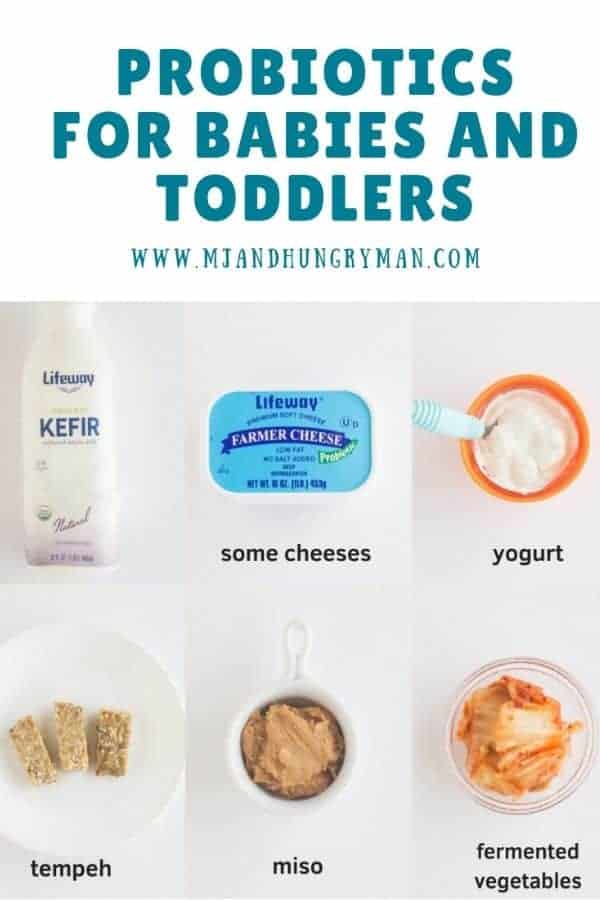
What are Probiotics?
To simply state, the term refers to the live bacteria (and yeasts) that are considered the “good” or “friendly” guys because they offer many health benefits. They are found naturally in our digestive systems as well as in foods and dietary supplements. For a product to be considered a probiotic, it must contain a sufficient number of viable microorganisms, meaning it must survive the acidic environment of the stomach and boost the population of good bacteria in the gut.
An infant at the time of birth has a sterile gastrointestinal tract. However, bacterial colonization takes place very rapidly and remain there throughout the rest of life.
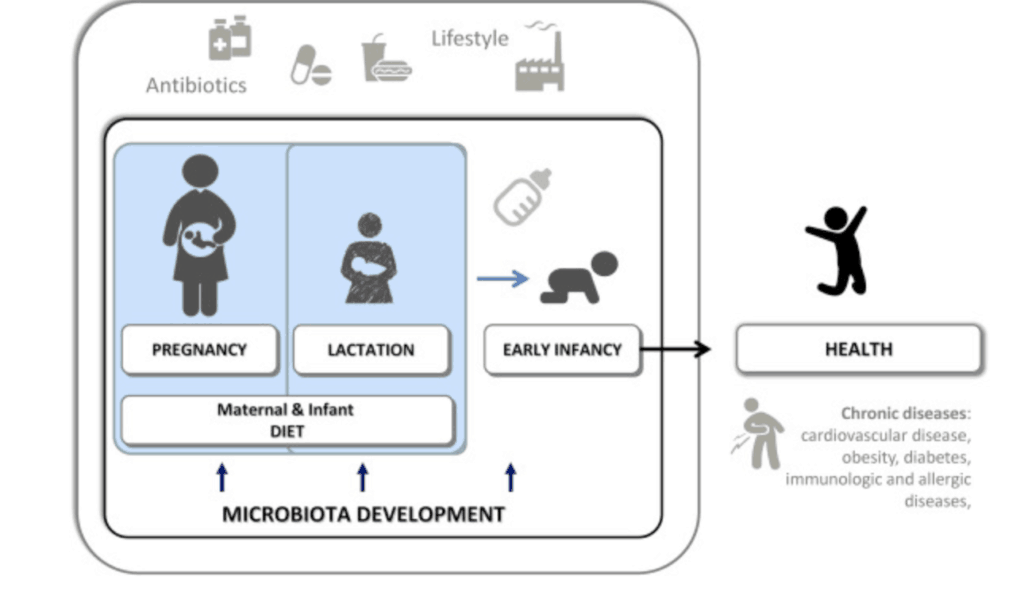
There are many factors that influence our makeup and function of gut microbiota, a fancy word for the community of micro-organisms (source):
- genetics (family members have similar microbiota)
- mode of delivery at birth (vaginal delivery exposes infants to the mother’s bacteria at birth, which influences the infant’s gut bacteria)
- the method of infant feeding (breastmilk is a great source of probiotics with >700 species of bacteria! source)
- diet: check out my previous posts – prebiotics, Fiber 101
- use of medications (e.g. antibiotics, NSAIDS)
I am passionate about sharing this topic to moms with babies and young children because studies show that the the microbial diversity increases and becomes adult-like between 3-5 years of age. Once established, the composition of gut microbiota stays pretty much the same throughout life, although it can be altered by diet, lifestyle, medications, etc.
Health Benefits
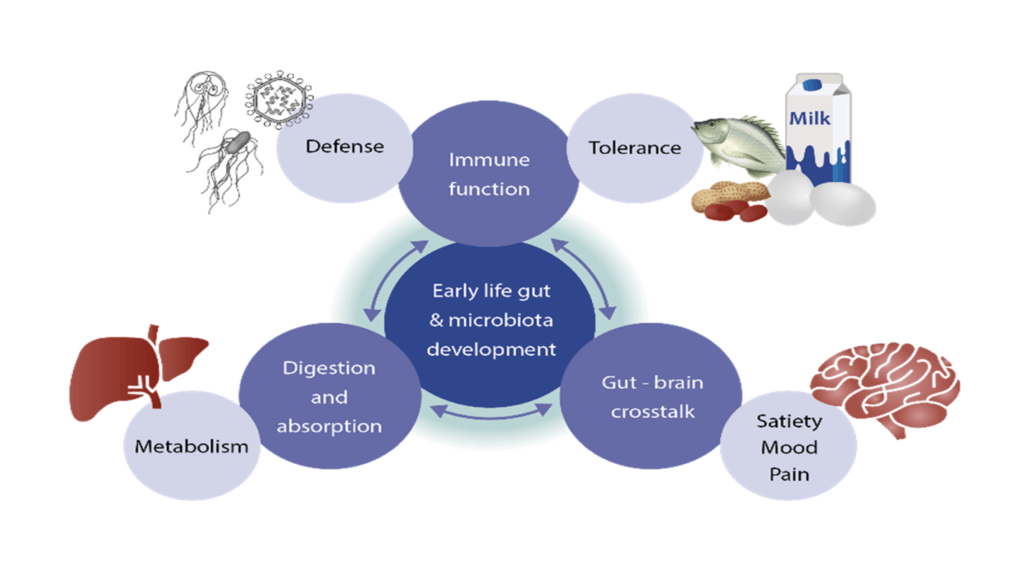
- aids in the process of breaking down proteins, carbohydrates, fats
- aids in transporting nutrients throughout the body
- produce vitamins K and B
- improves absorption of certain nutrients, like magnesium, calcium, and iron
- nourishes the cells of the intestinal wall, further aiding in digestion and absorption of food
- regulates appetite
- involved in the development of immune system (70% of the body’s immune system is found in the gut)
- defends against pathogens
- affects mood and behavior (hormones, neurotransmitters, and other factors from the gut send signals to the brain)
Under normal/ideal conditions, friendly bacteria outnumber the unfriendly ones in the gut. However, with poor diet, stress, medications, etc., the beneficial bacteria is depleted, creating an imbalance in the gut.
Research shows that people who suffer from certain diseases, such as inflammatory bowel disease (IBD) and allergy, obesity, celiac disease, have a different microbiota when compared to that of healthy individuals.
So you can see why if the gut microbiota is imbalanced with lower bacterial diversity, it can lead to poor health outcomes. Thankfully, consuming probiotics may help restore this balance and the diversity of bacteria.
Current Research Findings
Could giving probiotics to babies lead to health benefits later in life, like decreasing the chances of developing certain diseases? That’s a difficult question to answer at this time considering all the factors that need to be taken into account, such as which strains are most effective for which conditions, in what dose, and when. Not to mention there aren’t many studies done on children.
However, I do want to highlight some current research findings:
- acute infections diarrhea: a modest benefit in preventing acute gastrointestinal tract infections in healthy infants and children regarding prevention (source) and treatment (source)
- prevention of antibiotic associated diarrhea (source)
- treatment of colic in breastfed babies (source)
- potential for decreasing the risk of food allergy (source)
Again, since the health benefits of probiotics are strain-specific, Much more research is needed to determine which strains (and combinations) may be effective in preventing/treating which conditions.https://1c3caf8c4eb1dadcac32bdf9fafade87.safeframe.googlesyndication.com/safeframe/1-0-38/html/container.html
Are Probiotics safe for Infants?
Again, more research is needed and there isn’t any official recommendation regarding probiotics for children. However, the limited number of research studies doesn’t mean probiotics aren’t effective, and they appear to be safe for HEALTHY infants and children. After all, they already exist in a normal digestive system. Not to mention that children from all around the world where fermented foods is an essential part of their cuisine (e.g. miso in Asian countries) consume probiotics on a daily basis with no issues.
For healthy term infants, a recent double-blind, randomized, palacebo-controlled study showed that there were no apparent adverse events from long-term consumption of formula supplemented with two specific strains. In fact, all infants showed normal growth, and there were fewer reports of colic, healthcare visits, and antibiotic use.
The bottom line: Probiotics are considered safe for Healthy children. More research is needed before doctors can start prescribing probiotics for specific illnesses. As with any dietary change or supplementation in your child’s diet, be sure to check with your pediatrician first. However, note that probiotics aren’t recommended for children who are chronically ill or have a compromised immune system.
Food Versus Supplement
Being a registered dietitian, I’m a huge proponent of the FOOD FIRST approach. Research suggests real food sources of probiotics may be more effective than supplements. It maybe because of the actual bacteria themselves or because the foods also contain many other vital nutrients (e.g. protein, calcium, and magnesium) that offer a symbiotic benefit.
Also keep in mind that dietary supplements are not tested by the U.S. Food and Drug Administration like medications. That means quality and dosing can vary from product to product, perhaps even batch to batch.
You also know from our baby led weaning journey that I’m all about offering a wide variety of flavors and textures from early on. Offering fermented foods is a great way to exposure their palates to the tart/sour flavor.
Probiotic Foods for Babies
- kefir (we’re huge fans of Lifeway)
- yogurt
- cottage cheese
- some cheeses (cultured)
- buttermilk
- tempeh
- miso
- natto
- cultured non-dairy yogurts
- picked vegetables, like sauerkraut and kimchi – I personally haven’t introduced them to my 2 year old yet, but I’m planning on starting with sauerkraut first. Being Korean, there will definitely be a lot of kimchi in his life. They are pretty high in sodium (check out this post salt/sodium for babies & toddlers), though, so keep that in mind when offering.
look for labels that says “live and active cultures” or look at the ingredient list and make sure the specific probiotic strains are listed.
Remember, since different strains of bacteria are found in these foods, enjoying a wide variety is key to help diversity you and your child’s gut population.
Main Takeaways
- At this time, there isn’t enough research to support the use of probiotics to help prevent or treat specific disease/condition
- For normal, healthy infants and children, there is no harm in giving probiotics for overall health
- Choose food first over supplements. They provide additional nutrients and are absorbed better in the body. Remember, you are what you eat. But more importantly, you are what you absorb.
- Offer a wide variety of foods for maximum benefit.

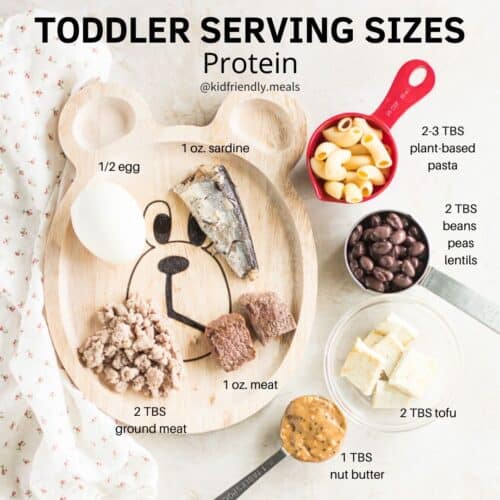

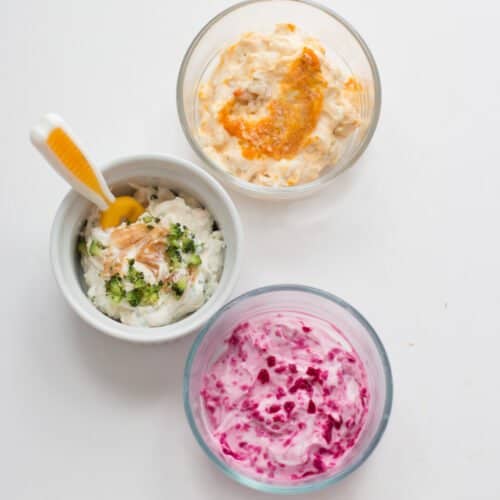
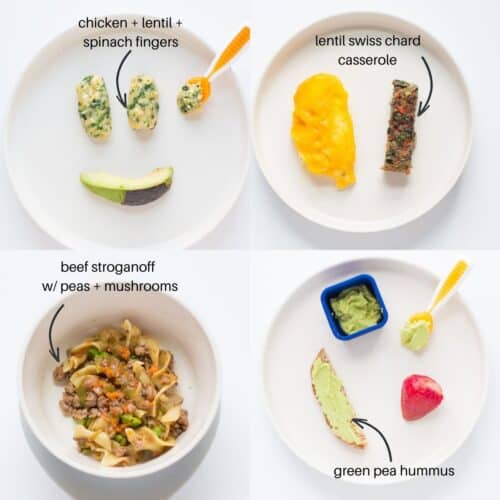

Leave a Reply